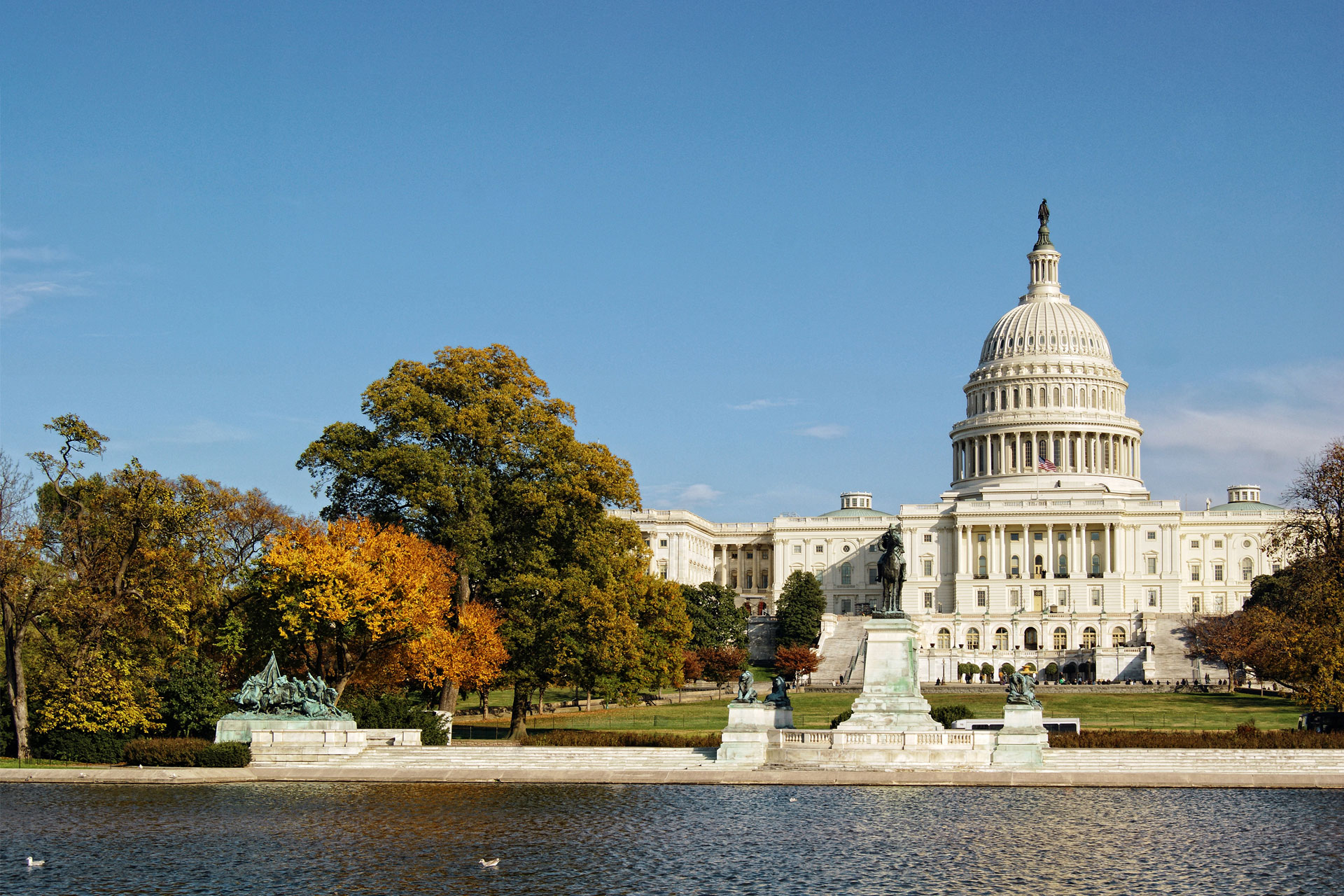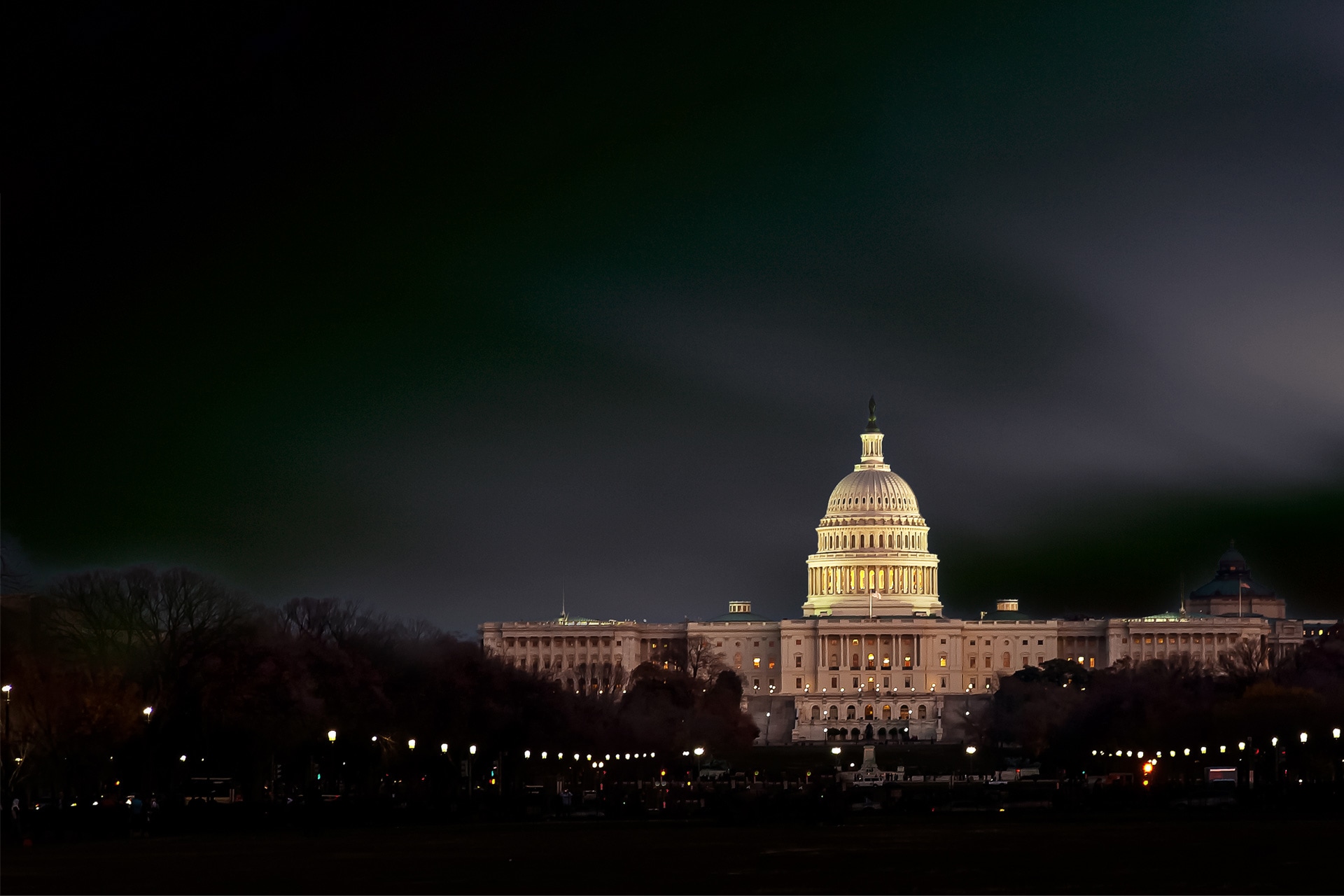
The US elections: a showdown for your portfolio from an investor’s perspective
Published on 11.06.2024 CEST
The US election is likely to dominate the headlines and, by extension, the interests of many investors until fall 2024. In the wake of the media showdown, the markets are already preparing for the “after.” Regardless of what the election result turns out to be, certain impacts and trends can already be identified from the candidate manifestos.
Read on to learn why the US elections have the potential to set the course for investors. How can what we know so far be translated into market expectations? And why, based on experience, does it pay to invest early?
Key takeaways:
- Recent polls are very close, suggesting that the election race is wide open for both candidates.1
- Historical data highlights the influence that the US presidential election can have on the financial markets.
- The main differences between the two manifestos are in domestic policy issues, foreign policy discussion points, and climate policy.
History will guide us
Historical data shows that previous US elections have had a measurable impact on the financial markets.2 Investors need to understand these correlations if they want to adapt their investment strategies with good foresight and reflect market movements in their portfolios during the election period. What many people don’t know is that the impacts on certain sectors and products can be seen as early as the primaries, which take place between December and May. US equity returns are generally lower at the beginning of the election year but tend to rise again from May/June after the primaries. 3
It’s important to remember, however, that past events are no guarantee of future results: A variety of factors can affect the markets and historical patterns can change. Nevertheless, analyzing historical data can help in developing a better understanding of how political decisions can influence the markets.
If you want to gear your investment strategy to such events, you could also use current surveys and trends to make investment decisions. The candidates’ campaign platforms, however, are just as revealing as their popularity.
Investing early pays off threefold
Investing early during the US elections can be tactically advantageous for several reasons. Elections often bring uncertainty and fluctuations to the market, which can trigger short-term price movements. Investors can benefit from this volatility by investing early in assets that have dropped temporarily and may be undervalued.
In addition to this volatility, the election prospects are also relevant. Individual sectors and companies will react differently depending on the outcome of the election, which enables investors to take early positions in sectors that are likely to benefit from the political changes. An example of this would be investing in renewable energies before the Democrats win the election or in traditional energies before the Republicans win.
The third consideration when it comes to election campaigns stems from promises for government spending. Early investors can position themselves to benefit from anticipated fiscal measures that could boost certain industries.
By investing early, you can diversify your portfolio better and manage risk more effectively. Investors can develop strategies to minimize the risk associated with political events while also benefiting from the opportunities they offer.
Election campaigns at the forefront
The US has had a de facto two-party system consisting of the Democrats and Republicans for over 160 years now. In the recent past, this dichotomy has led to even more extreme positions in parts of both parties. This, in turn, has encouraged the development of more polarized presidential candidates and, often, a very clear demarcation between the parties’ platforms.4
The performance of the industries focused on by the presidential candidates could therefore change significantly depending on the outcome of the elections. The relatively broad scope of presidential powers in the US increases the influence of presidential elections on the markets all the more.
Trump – «Make America great again!»
Three central themes from Trump's election campaign promises summarized.5
Donald Trump’s plans to rebuild the largest economy in history are aimed at strengthening and modernizing the United States through various measures, such as lower taxes, promoting economic activity, and free cities with less regulation and more freedom. His campaign also focuses on increasing border security and creating new jobs. There are also plans to dismantle the “deep state“6 in order to remove bureaucratic hurdles and unnecessary regulations and increase the efficiency of the government.
As part of his “America first” policy, Trump plans to focus on restoring supply chains and establishing secure borders. The development of next-generation missile defense will also be promoted as well as the end of the war in Ukraine. In addition, the war against drug cartels will be at the forefront.
Trump’s campaign also underlines pursuing the US’s global energy dominance further. To this end, a low price for gasoline and an expansion of drilling on public land are planned. Energy security is a central theme of the Republican election campaign, and withdrawal from the Paris Climate Agreement is also being considered. The government plans to cut state subsidies for wind turbines and stop the “green revolution.”
Biden – «Let’s finish the job»
Joe Biden is exposing himself less in his election campaign promises and is pursuing the further development of existing measures from his current term of office.7
Biden’s planned measures include continuing to develop infrastructure and technology, as well as increasing government spending on education and healthcare. Raising taxes for the wealthy and large companies is also a key focus, as well as a looser immigration policy.
One of President Biden’s foreign policy plans is to mobilize allies against aggressors. He plans to overcome global issues through alliances and cooperation. Under Biden, the US is providing military support for Ukraine and is committed to a two-state solution in the Middle East.
The goals pursued by Biden’s climate policy will continue to take center stage. US President Joe Biden has signed the Inflation Reduction Act (IRA) into law, a package of measures to reduce CO2 emissions in the US by around 40 percent by 2030. If he remains in office, this is likely to lead to increased investment in renewable energy sources and infrastructure as well as stricter regulation of traditional energy producers.
In focus: two candidates, two different campaigns
The nuances in both parties’ campaigns are to be found in the details. Donald Trump’s campaign is often referred to as Agenda 47—in reference to the upcoming 47th presidential election—and is akin to an updated version of “Make America great again.” Joe Biden, on the other hand, sees his job as not yet finished with his slogan “Let’s finish the job”.
In a detailed examination of the individual thematic blocks, our experts identified major divergences in three areas of the party programs: foreign, domestic and climate policy.
Three axes of opposition
Foreign policy: cooperation vs. competition
The two presidential candidates hold opposing positions on foreign policy. Donald Trump is in favor of the US withdrawing from conflicts abroad in order to use the resources freed up by this to fight the drug cartels in South America and thus solve the US’s drug problem. Joe Biden, on the other hand, wants to stick to the current joint policy with foreign allies and form a counterweight to foreign aggressors.
Both the Republicans and the Democrats have recognized over the years that an anti-China policy increases voter favorability.8 Democrats are pursuing a collaborative strategy, the Republicans are more of a “hardliner,” seeing themselves in direct competition with China. They therefore tend to focus on promoting the local economy, increasing import duties, and putting Chinese companies on the “Entity List“9.10
Domestic policy: regulation vs. deregulation
The Republicans are known for cutting taxes, slashing subsidies, and abolishing large numbers of regulations during their term of office. This could be beneficial for some sectors.
Conversely, Joe Biden is in favor of higher taxes on wealthy individuals and companies with an annual turnover of over one billion US dollars. Furthermore, the two parties have different positions on migration policy, with Donald Trump taking a more restrictive stance in line with his previous statements.
Depending on the candidate, regulatory policy could influence shares in various different companies, for example in the healthcare, energy or technology sectors. Within the equities asset class, industrialized countries are most likely to benefit; shares in companies in some emerging markets could be negatively affected by the trade war.
Climate policy: green vs. gray
President Joe Biden is backing a climate policy focused on renewable energies and supporting the IRA (Inflation Reduction Act). Biden has introduced new regulations and financial subsidies in favor of the energy transition.
Presidential candidate Donald Trump is quite different. His campaign tends to focus on traditional energy generation using oil, nuclear power, and non-renewable sources. His aim is to reverse the regulation of the energy sector, as he believes that the country’s energy requirements cannot be met by alternative energy sources in the medium term.
Impact on the markets—investment strategies against the backdrop of the US elections
Knowing how the election results might impact the markets and certain sectors gives us a solid basis for developing an investment strategy that incorporates these market assessments. The regulatory policy pursued by each candidate can affect the shares of certain sectors, such as the healthcare sector, the energy sector or the technology sector.
Sectors selected by us from Joe Biden’s election campaign that could benefit from a Democrat win:
Energy and climate
Promoting renewable energy and climate solutions for a sustainable future.
Electric vehicles and green mobility
Encouraging sustainable mobility with alternative transport systems.
Healthcare and the pharmaceutical industry
Expanding medical care and simplifying access to medicines for a broader population.
Infrastructure and production
Fostering the development of local infrastructure and local manufacturing.
Technology and media
Promoting cutting-edge innovation and growth in the media and technology sector.
Consumer goods
Providing basic goods and services to meet the day-to-day needs of American consumers.
Sectors selected by us from Donald Trump’s election campaign that could benefit from a Republican win:
Energy and fossil fuels
Supporting energy production from oil, nuclear power, and other non-renewable sources.
Aerospace and defense
Promoting defense technologies and systems to strengthen national security.
Real estate
Investing in companies active in the development and management of real estate.
Infrastructure and manufacturing
Developing infrastructure, manufacturing, steel production, and expanding the border wall.
Technology and media
Promoting cutting-edge innovation and growth in the technology and media sectors.
Finance and telecommunications
Pursuing opportunities in areas that could benefit from Trump’s deregulatory efforts.
We have systematically analyzed potential market trends for both outcomes of the election, highlighting the sectors and asset classes that could benefit from each result.
Tension is rising. It is not yet clear who will come out on top: Both parties/candidates have a chance of winning the election. What is certain, however, is that the stock markets will reflect the latest developments until the election.
1 https://www.nzz.ch/international/wahlen-usa-2024-die-neusten-umfragen-zu-trump-und-biden-ld.1824999
2 Performance data of US stocks since 1950, (LSEG Datastream Vontobel, as of: May 14, 2024).Vontobel analyses based on historical market data. For further information please contact our specialists
3 Performance data of US stocks since 1950, (LSEG Datastream Vontobel, as of: May 14, 2024).Vontobel analyses based on historical market data. For further information please contact our specialists
4 https://www.eurasiagroup.net/live-post/top-risks-2023-8-Divided-States-of-America
5 https://www.donaldjtrump.com/issues/economy
6 State within a state, also known as the shadow state. In the United States of America, there is an assumption that it is not the democratically legitimized decision-makers who control the country's destiny, but rather the “deep state”.
8 https://www.pewresearch.org/global/2024/05/01/americans-remain-critical-of-china/
9 The “Entity List” is a list maintained by the US government of foreign persons, companies and organizations that are classified as national security risks and that are subject to export restrictions and licensing requirements for the export of certain technologies and goods.
10 Cooperation/Biden: https://edition.cnn.com/interactive/2024/04/politics/biden-campaign-promises-dg/
Competition/Trump: https://www.donaldjtrump.com/issues/economy
Published on 11.06.2024 CEST

